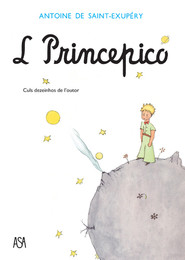© Peter Reynolds drawing
"In celebrating World Poetry Day, UNESCO wishes also to promote the values that poetry conveys, for poetry is a journey – not in a dream world, but often close to individual emotions, aspirations and hopes. Poetry gives form to the dreams of peoples and expresses their spirituality in the strongest terms-- it emboldens all of us also to change the world."
Irina Bokova, Former Director-General of UNESCO
Every year on 21 March, UNESCO celebrates the World Poetry Day. A decision to proclaim 21 March as "World Poetry Day" was adopted during the UNESCO’s 30th session held in Paris in 1999.
The aim is to promote the reading, writing and teaching of poetry:
According to UNESCO: 'World Poetry Day is an invitation to reflect on the power of language and the full development of each person’s creative abilities'.
According to UNESCO: 'World Poetry Day is an invitation to reflect on the power of language and the full development of each person’s creative abilities'.
So, Poetry Day means to support poetry, return to the oral tradition of poetry recitals, promote teaching poetry, restore a dialogue between poetry and the other arts such as theatre, dance, music, painting and so on, support small publishers and create an attractive image of poetry in the media so that the art of poetry will no longer be considered an outdated form of art but one.
credits: The Stick Guy
Education:
World Poetry Day is an opportunity for children to be introduced to poetry in at school (all levels). It is a time when classrooms are busy with lessons related to poetry, in which students examine poets and learn about different types of poetry.
Students love poetry!
I would like to celebrate on this day the Portuguese poetry for chidren and youth. So I suggest two books from the Portuguese poet Manuel António Pina who died last October, 2012.
Manuel António Pina, awarded with the famous Prémio Camões 2011. He didn't wrote only for youth. Manuel A. Pina is one of most important Portuguese poets. His books are translated in Spanish, Danish and Bulgarian.
If you are a teacher who teaches Portuguese language and literature in Portugal or foreign countries, you may like to promote Manuel António Pina poetry in your lessons in "World Poetry Day 2013".
There are other poets present on this blog: Fernando Pessoa at Google doodle celebrates Fernando Pessoa or Jorge Luis Borges at Google doodle celebrates Jorge Luis Borges.
Some Activities:
Manuel António Pina, awarded with the famous Prémio Camões 2011. He didn't wrote only for youth. Manuel A. Pina is one of most important Portuguese poets. His books are translated in Spanish, Danish and Bulgarian.
O Pássaro da Cabeça& mais versos para crianças
Children's poetry | Primary Education
Manuel A. Pina
illustrations: Ilda David
credits: Assírio & Alvim
Todas as Palavras/ Poetry
Youth poetry | Secondary Education
Manuel A. Pina
illustrations: Ilda David
credits: Assírio & Alvim
There are other poets present on this blog: Fernando Pessoa at Google doodle celebrates Fernando Pessoa or Jorge Luis Borges at Google doodle celebrates Jorge Luis Borges.
credits: unknown
- Encourage your students to read and write their own poetry in the classroom. For some ideas, please read my post: It's About Twiter and Poetry (World Poetry Day 2011);
- Award your students for best and creative poems! Students love 'awards'!
- Invite to learn from the proverbs of your country, and discover the poetic teachings of others;
- Read up about riddles, limericks and sonnets with students to liven up your school libraries;
- Promote a contest of poetry between different classes at you school or other schools;
- Share some little Portuguese poems written by my students here or here (the blog is for my students in Portuguese Language curriculum): students read some traditional Portuguese riddles as inspiration for their creative written;
- Invite a young poet to talk about his poetry with your students at school;
- Go on the city, at book stores, metro stations, gardens, and inspire your students to read some poetry. Remember Let's Play Music! (World Music Day 2012);
- Promote some exhibitions and poetry events in your school to be held to showcase the work of various 'young poets' (school students) on or around March 21 to coincide more or less with "World Poetry Day";
- Support Poetry by inviting your students and their parents buying books of young poets (sometimes, parents ask teachers for some advices about books for their children);
- Support poetry on school radio, in school journals and display videos about poets! Bright Star by Jane Campion is a lovely film about poetry and John Keats' poetry;
- Finally, if you have decided to introduce the Portuguese poet Manuel António Pina, you can display in the classroom as a motivation the video tribute to the poet (Portuguese language as mother tongue or foreign language).
All the activities must be adapted to the levels you are teaching : Primary education to Secondary and Vocational Education.
"Poetry is one of the purest expressions of linguistic freedom. It is a component of the identity of peoples and it embodies the creative energy of culture, for it can be continuously renewed".
Irina Bokova, Former Director-General of UNESCO
G-Souto
21.03.2013

21.03.2013
Copyright © 2013G-Souto'sBlog, gsouto-digitalteacher.blogspot.com®
World Poetry Day at school by G-Souto is licensed under a Creative Commons Attribution-NonCommercial-NoDerivatives 4.0 International License.



















